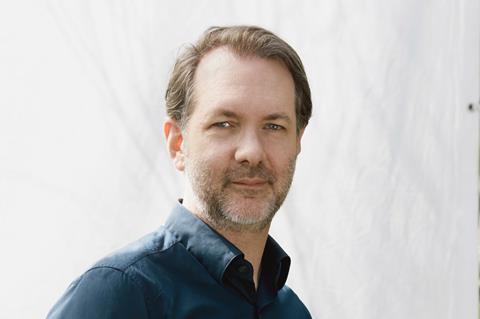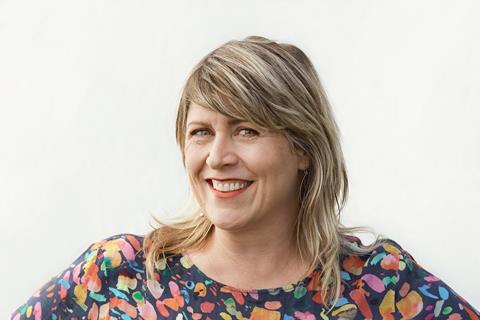
Launched in 2011 by New Zealand-based web designers Matt Buchanan and Karl von Randow, Letterboxd, the social platform for cinephiles to log their viewing, exploded during the pandemic and now has 13 million members in more than 190 countries — up from 1.8 million members in 2020, a seven-fold increase. And it has expanded into reviews, interviews, screenings, listings, an online magazine and a podcast, setting itself up as a one-stop shop for movie lovers globally — and giving content distributors a fast-growing platform to reach an engaged and younger-skewing audience.

“When we started building the app back in 2010, we just wanted a cool app,” says Buchanan, who sold a controlling stake to Canadian investment firm Tiny in 2023 for a reported us$50m, but still runs the company with von Randow. “There was nothing around for film lovers to catalogue their collection, nothing online and social, and we wanted a tool that was fun and engaging.”
Community spirit
Some 13 years later, Letterboxd has become a significant presence. “We’ve elbowed our way into this party that is the film industry and now we exist in this interesting space between filmmakers, distributors and the studios,” explains Buchanan. “We see our job to be the grease between those and help our community discover films they may not otherwise discover.”
This desire to help includes the recent addition of cinema listings (showtimes) to the platform, alongside its streaming information. Although only available to patron members during its beta stage, listings are now free for all members and are so far available in five regions — UK-Ireland, US, Canada, New Zealand and Australia — with more planned. “This is not data we collect. We work with a partner to provide it,” says Buchanan. “As and when they bring more regions on board, we’ll make those available.”
It is not just the multiplexes; arthouse and repertory cinemas are included in the listings. “In terms of our mission of sharing all films, old, new and diverse, it felt important that if you’re looking at [Brian De Palma’s] Phantom Of The Paradise’s page on Letterboxd and it’s showing at the arthouse near you in the next seven days, you should be able to know that,” says Gemma Gracewood, editor-in-chief of Letterboxd’s Journal and co-host of its podcast.
“We would like to be able to alert you with a notification when a film in your watchlist is screening near you, which is not something we’re able to do today but that’s part of the future plan,” adds Buchanan. “We’re working with a partner to figure out the licensing to allow that.”
Letterboxd is also ratcheting up its in-person, buzz-building preview screenings for members, which now mostly take place in the UK, US, Australia and New Zealand. “We have relationships with a lot of distributors and studios,” says Buchanan. “If a studio has a film they want to market, they’re going to come to us, there’ll be an exchange of dollars. We will market that film to our community. Obviously, we know what people love because they tell us the types of films they love.”
UK screenings over the past year have included Monster (Picturehouse), Perfect Days (Mubi), Reality (Vertigo), Talk To Me (Altitude) and Fingernails (Apple). “Our partners will say, ‘We want to have a preview word-of-mouth screening of this film, can you find us the Letterboxd members in London who like this filmmaker’s work?’” reveals Gracewood. “Or we’ll create lists of comparative movies where we know from our data the members in the regional area enjoy. That’s how we create our RSVP list.”
“We generally try to pick members who are engaged in the platform,” adds Buchanan, “so it’s always people with followings and who write regularly.”
The result is early Letterboxd reviews. “We will often have a social team there when the screening [audience] gets out and capture reactions, which is another way review content gets delivered,” says Buchanan. “We’re also making video content for our social media about the reactions to the films as well. So there’s a second wave of content, vox pop style, that’s also popular.”
Again, it is not just new movies. “Another angle to this is we get approached by people like [London’s] Prince Charles Cinema to run mini festivals based on content we’ve published,” says Buchanan. “We did this ‘High Risers’ article a couple of years back, which were the films that have been critically re-evaluated in the upwards direction over the lifetime of Letterboxd, and they picked a handful and screened them.”
Youthful skew
There is plenty of anecdotal evidence that Letterboxd is helping younger film fans become more adventurous in their viewing choices. The expansion of the platform has coincided with reports from independent cinemas of growing audiences aged under 25 for arthouse films — a reversal of the previous upwards demographic drift at these venues.
The biggest age cohort for Letterboxd members is 18-24, followed by 25-35. “We certainly skew younger,” says Buchanan. “We know a lot of the filmmakers, if they’re not on Letterboxd themselves, their kids are, or their nieces and nephews. So some films are going to bubble up and become films to seek out because our community has platformed them and said, ‘This is a film that you can’t miss.’”

“I was talking to a politician a few nights ago whose 17-year-old-son is on Letterboxd and had watched Eric Rohmer’s The Green Ray because someone else he followed had given it a five-star review,” recalls Greenwood. “He was like, ‘Dad, this is the best film I’ve ever seen.’ If someone had shown me The Green Ray when I was 17, I think it would have changed my life as well. I saw it last year for the first time because someone on Letterboxd wrote a beautiful review, and they were right.”
Going forward, Buchanan is open to growing Letterboxd even further. “We’re not scared of growth. What we want to ensure, as best we can, is that it’s film lovers, the cinephiles, that we’re continuing to attract.”
Editorially, Gracewood is keen to promote from within. “Our favourite thing to do is to harvest our red‑carpet reporters and journal writers from Letterboxd itself. It’s delightful to be able to look into your own community when you’re thinking about new voices.”
Moreover, her team, which includes international freelancers, is on the lookout for areas that feel underserved. “The theatrical marketplace is increasingly challenging, but specifically documentaries,” says Gracewood. “So non-fiction theatrical is something we could do more on, or more for, because our community already does the work, sourcing and curating incredible lists of docs that people should be watching. We’re going to be doing more of what we generally do, which is listen to our community. And follow our noses along the paths they create for us.”















![[L-R]: Amanda Villavieja, Laia Casanovas, Yasmina Praderas](https://d1nslcd7m2225b.cloudfront.net/Pictures/274x183/6/4/1/1471641_pxl_20251224_103354743_618426_crop.jpg)






![[L-R]: Amanda Villavieja, Laia Casanovas, Yasmina Praderas](https://d1nslcd7m2225b.cloudfront.net/Pictures/100x67/6/4/1/1471641_pxl_20251224_103354743_618426_crop.jpg)


No comments yet